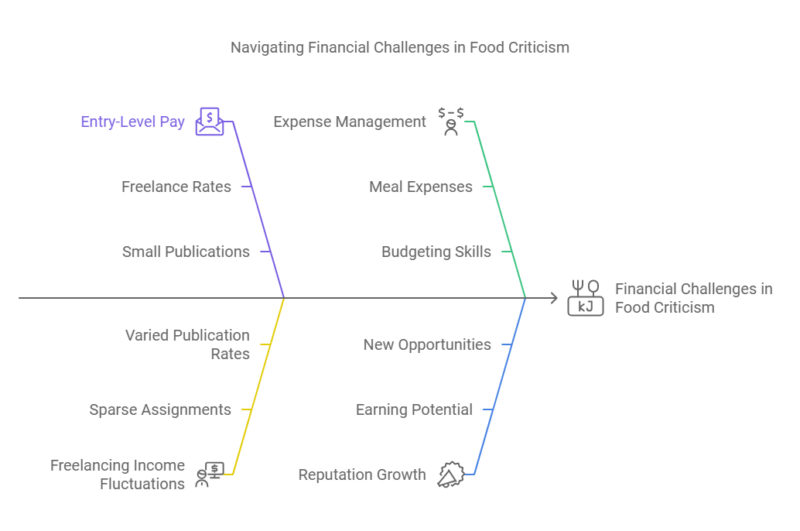When I first dreamed of becoming a food critic, I pictured myself waltzing into fancy restaurants, indulging in gourmet meals, and getting paid to write about it. The reality – a bit harder than that. It’s a mix of dedication, hard work, and, of course, a deep love for food. Let me share the essential steps to carve your path in this flavorful career.
1. Get the Right Education
A degree in journalism, communications, or English is a great starting point. During your studies, focus on honing writing skills, researching effectively, and learning to communicate clearly. If possible, take electives that explore food media or food writing. It might not seem like much at first, but these foundational skills will set you apart later.
2. Develop Writing Experience Early
Begin contributing to your school newspaper or any publication that welcomes new writers. This early exposure helps build confidence and polish your voice. Accept any writing assignments you can get—writing about sports, campus events, or even opinion pieces. Every word you write sharpens your craft.
3. Learn the Basics of Cooking

Even as a food critic, you don’t need to be a master chef, but basic culinary knowledge goes a long way. You’ll start to notice how preparation impacts flavor and texture. It’s an eye-opener, trust me.
4. Expand Your Palate
Push your comfort zone. Try sushi if you’ve never had raw fish, or explore regional cuisines that seem unfamiliar. Frequent diverse restaurants, and don’t shy away from asking chefs or servers about ingredients and preparation. The more you know about food, the better you’ll be at critiquing it.
5. Start a Blog

Write engaging reviews of meals, recipes, or food trends. Make each piece entertaining while also packing it with valuable insights. A well-maintained blog often serves as a portfolio for potential employers.
6. Contribute to Established Platforms
Pitch to food blogs or smaller publications that accept guest contributions. Don’t be discouraged if initial work isn’t paid—it’s all about getting your name out there. Those bylines start to add up, and before you know it, you’ll have a credible portfolio.
7. Read and Learn from the Greats
Take inspiration from established food critics. Read their reviews to analyze how they describe flavors, textures, and ambiance. Don’t just mimic – develop your own voice, but use their work as a guide.
8. Perfect the Art of Food Description
Writing about food isn’t just about saying it was “good” or “bad.” Your words should make readers taste, smell, and feel the meal through their imagination. Aim to paint a picture so vivid that readers can almost hear the sizzle of a perfectly grilled steak.
9. Apply for Writing Positions
Start with publications where you already have connections. If you’ve been writing for your local newspaper or contributing to a blog, ask about opportunities to focus on food. Don’t hesitate to pitch creative ideas—they show initiative and a willingness to bring fresh content.
10. Freelance Your Way In
Freelancing is a common route in this field. While it requires hustling for assignments, it also offers flexibility. You’ll gain experience, expand your network, and build a portfolio—all while getting paid.
Challenges to Be Aware Of
Tough Competition
Food criticism is one of those dream jobs that spark envy from outsiders, but the reality is that it’s fiercely competitive. With a limited number of full-time positions available, many aspiring critics begin their careers in part-time or freelance roles, often juggling other jobs to make ends meet.
It’s a space where passion meets persistence, and every step forward counts. Starting small is the norm, whether it’s writing reviews for local blogs, submitting unpaid contributions to build a portfolio, or reviewing hidden gems that haven’t yet made headlines.
The climb might feel slow and, at times, discouraging. You’ll send pitches that get ignored, receive feedback that stings, and face moments of self-doubt. But each published piece and every opportunity to showcase your unique perspective is a building block.
Financial Realities

Entry-level pay in food criticism isn’t glamorous, especially if you’re freelancing or writing for smaller publications. Many publications reimburse critics for meals after reviews are submitted, but this means you often need to cover expenses upfront.
Eating out frequently to expand your culinary knowledge can also add up, making budgeting a vital skill.
As a freelancer, income can fluctuate. Assignments might be sparse in the beginning, and rates vary widely depending on the publication. Some freelance gigs might pay as little as $7.25 an hour, while high-profile outlets could offer up to $74.45 an hour.
On the bright side, as your reputation grows, so do your earning potential and opportunities. Established critics often branch out into books, television, or global food writing, which can open up new revenue streams.
Until then, approach your finances with a long-term mindset. Find ways to supplement your income, be it through other types of writing, content creation, or even unrelated work—while you establish yourself in the field.
What Makes a Great Food Critic?

Readers appreciate honest opinions, but overly harsh reviews can alienate your audience. Above all, aim to engage. Make your writing entertaining and informative, and people will keep coming back for more.
Final Thoughts
Becoming a food critic is not a walk in the park, but the rewards are worth it. You get to blend creativity, passion, and expertise into a career that brings joy to others and yourself.

